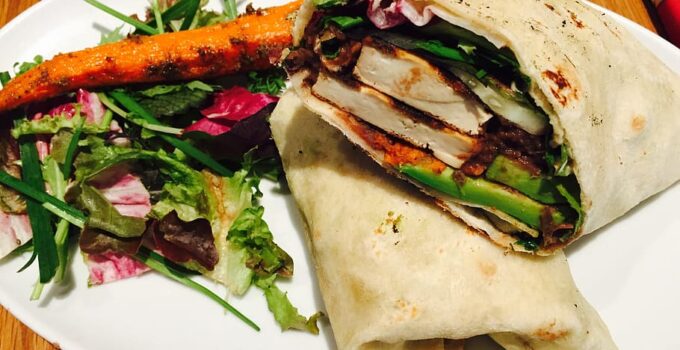These days, a lot of people are worried about the future of the planet, their health and the treatment of animals on farms. And for a good reason. This is why many of those people have decided to give up meat and dairy to find the required nutrients in plant-based food. For those that are following a strict vegan or a vegetarian diet, it can be hard to understand what you are supposed to eat to get enough proteins, calories and other nutrients.
There are actually a lot of plants that are rich with as many proteins as most meats. But, not only will you be getting protein, but many other nutrients that will keep you healthy and make you feel great.
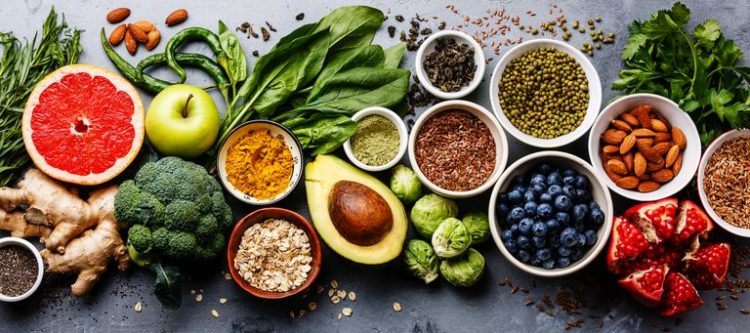
source:runnersworld.com
So, if you want to build your own plant-based diet and if you want to find out which foods you should add to that diet, here is a short guide for 2024 to ensure that you intake enough protein throughout the day.
Page Contents
Protein
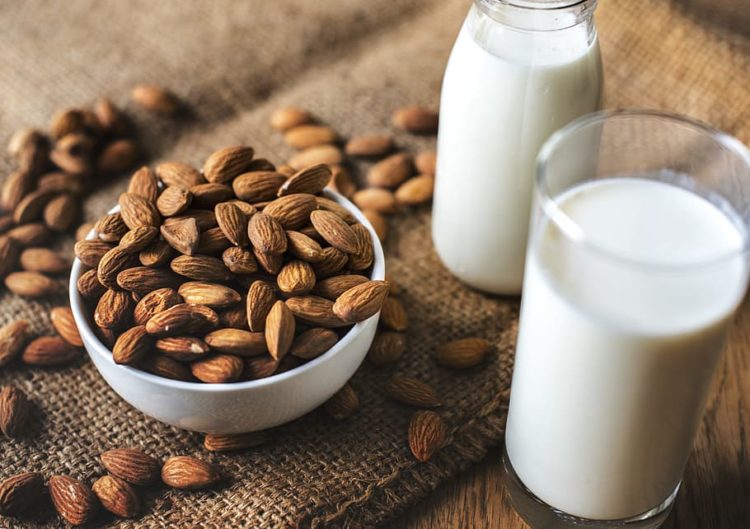
source:pxfuel.com
Before we get in-depth about the various benefits that you can get out of vegetables or fruits, you should first understand what protein is. This macronutrient is one of the most important ingredients in every food and is what helps the body reproduce cells to repair itself.
Every time you use your muscles that requires a bit more physical strength, you are tearing those tiny muscle fibers. These fibers need to heal over time, but you can increase the strength of those fibers and the time it requires for them to heal with proteins. These macronutrients also give us energy throughout the day, keeps us strong and can help us get fit.
How much protein do I need?
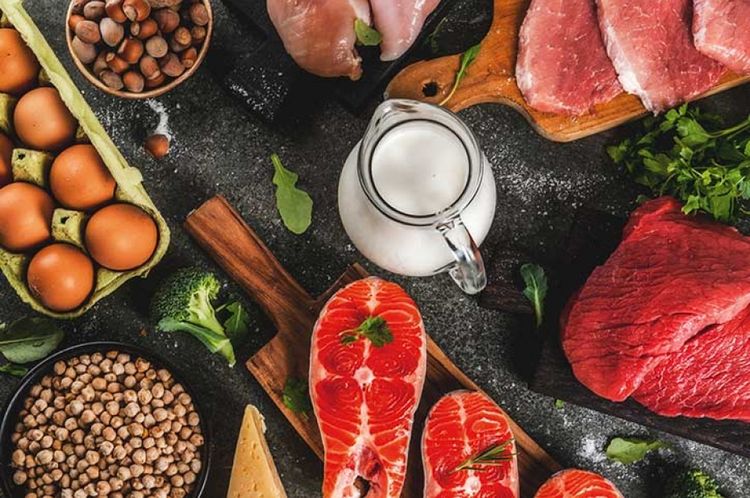
source:optimumnutrition.com
Many people are obsessed with the idea of getting enough protein throughout the day. Some people believe that you need more than double your weight of this nutrient to satisfy your body. This might be true, but only if you are an athlete that is getting ready to compete at the Olympics or if you are bodybuilder that wants to win the Mr. Universe.
The regular man who works out every single day does not require nearly as much as people claim. Researches have proven that an average-weight male (about 70 to 80 kilograms) needs to eat about 60 grams of protein which is almost a hundred grams less than what a lot of people like to claim. Keep in mind, the exact intake amount depends on a person’s muscle mass, weight and the intensity of the workouts.
Believe it or not, but the average intake in the United States is over ninety grams. This is because the amount of this important macronutrient in the meat is too high, so people who like to eat meat meals several times a day probably intake more than one hundred grams of it. If you want to improve your intake of protein throughout the day, check out diet life‘s advice on this subject.
Now that we have gone through the basics of this nutrient, here are some plant-based meals that will provide you with a lot of it.
Tempeh
Tempe or tempeh is an Indonesian product that is made from soybeans. The soybeans go through a fermentation process until the take on this form of a cake. This low-calorie meal can provide you with more than twenty grams of protein in one bite. What’s great about this product is that you do not have to cook it if you do not want to.
You won’t have to come home early, defrost the meat, prepare it and cook it, only to eat it in a couple of seconds. Just open up the refrigerator, take a bite out of the Tempeh and you have already filled your stomach with various nutrition that will keep you full and energetic throughout most of the day.
Of course, if you want to give a bit of taste, you can cook it any way you want. You can add salt to it, you can add sauces to it and even sugar to make it a bit sweeter. The options are unlimited.
Lentils

source:medicalnewstoday.com
Lentils are edible legumes that can come in all kinds of colors including red, green, brown, black and yellow. They are quite low in calories, a great source for protein and can be cooked in just a couple of minutes which is great for those that do not have a lot of time to prepare proper meals throughout the day.
What’s great about lentils is that you can put them in anything you want. You can add them to your salad to give a bit more nutrition value, add it to your veggie taco or just pop it in the oven, roast it and eat it as a snack while you are watching TV or reading a book.
Peanuts
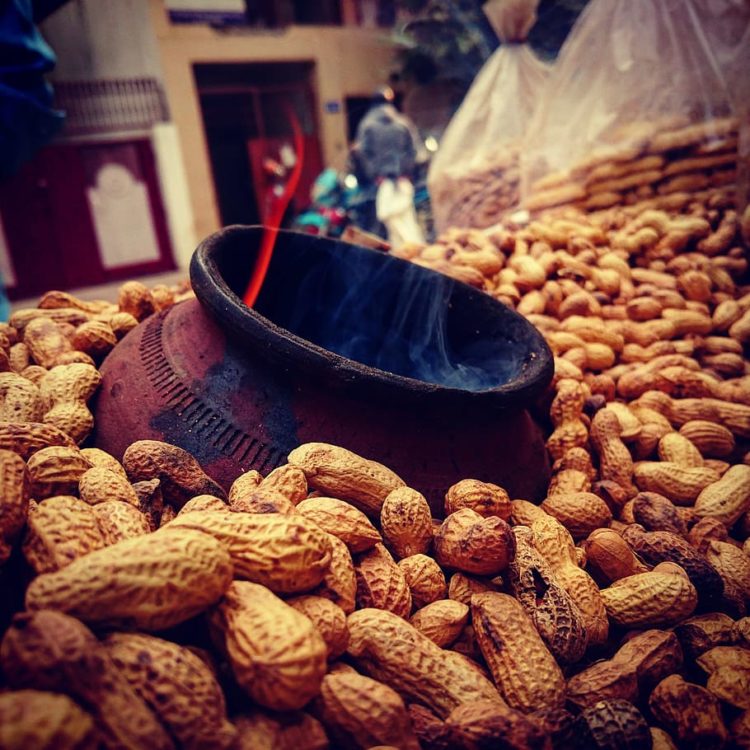
source:pxfuel.com
You probably already know that peanuts are a great source for protein, but they also provide your body with a lot of potassium, magnesium, and iron which is a great bonus. Keep in mind, this legume might be tasty and nutritionally rich, but it is also very high in fats and calories. Eating too much of these can be bad for your health, especially if you have problems handling too much fat. A hundred grams of peanuts is more than 500 calories. Yes, that is a lot.
Almonds
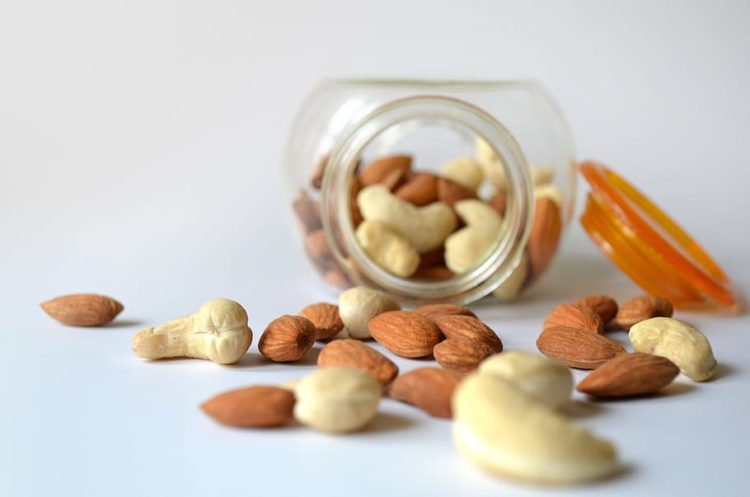
Another great option to enrich your brand new plant-based diet. They are native to Iran and its neighboring countries but can be grown almost anywhere with the right equipment. They contain 3.5g fiber, a lot of manganese and magnesium. All of these are great for your body, so make sure that you add it to your daily meals or as a quick snack in-between the meals.
Cashews
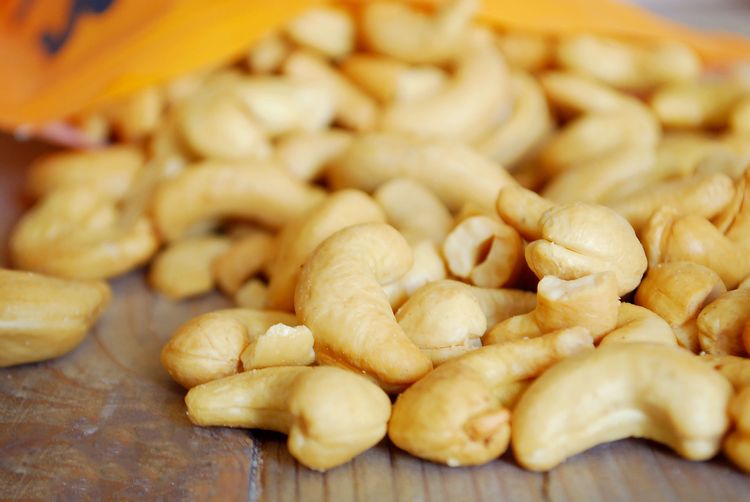
source:nuts.com
You are probably familiar with cashews as one of the most expensive seeds at the supermarket, but the nutrition in these seeds are definitely worth it. Eating just half a cup of cashews will make you feel like you have eaten an entire beef steak.

